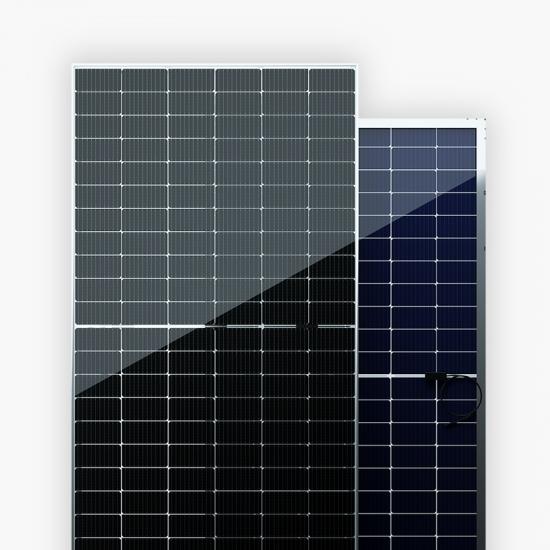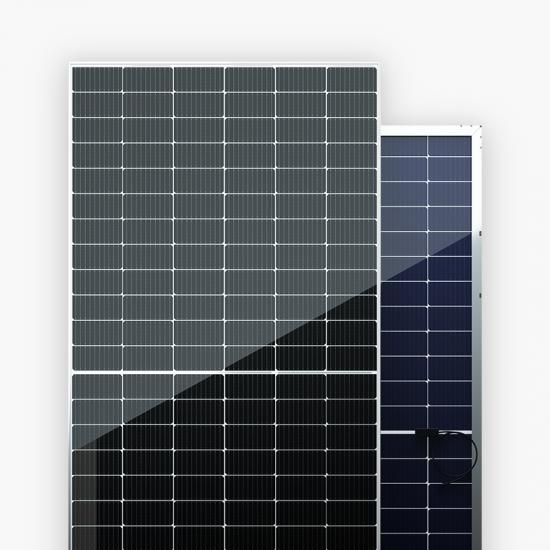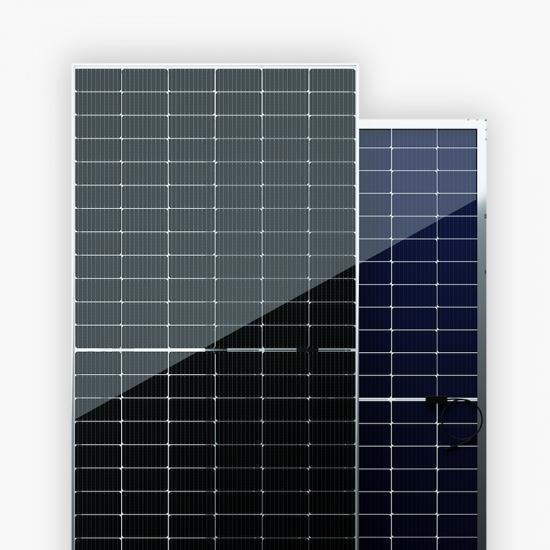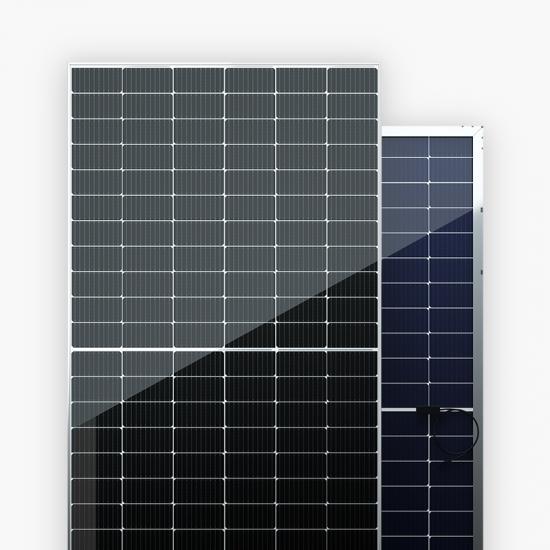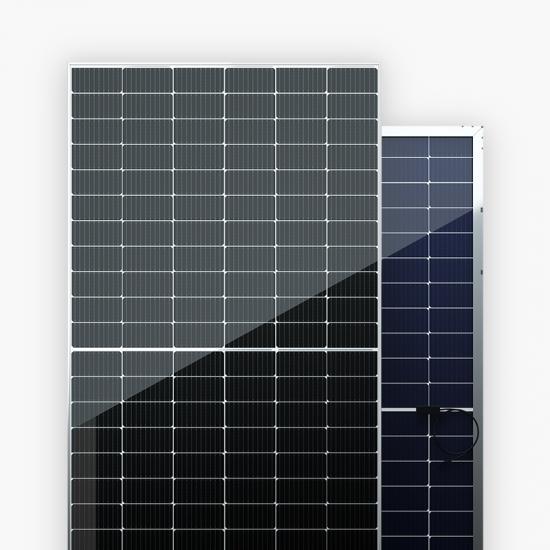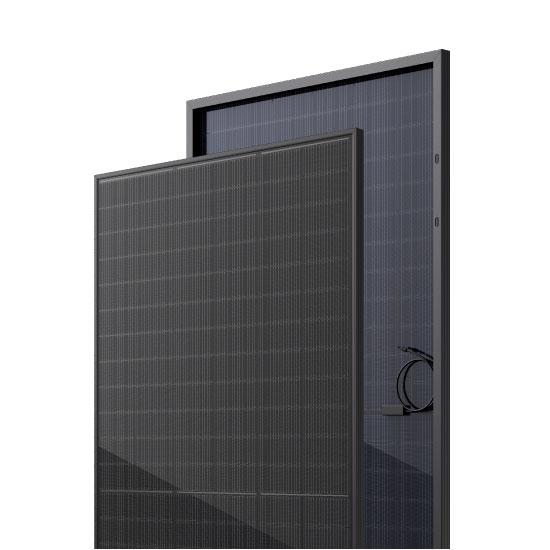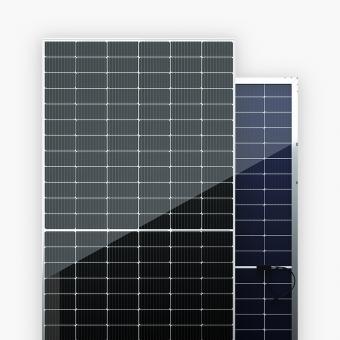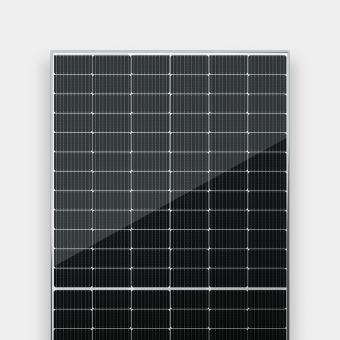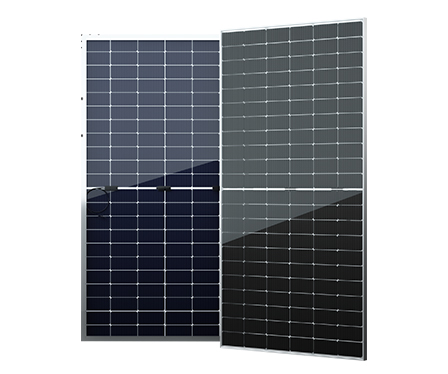
Bifacial MBB Solar Module
Sunpal Solar has the most advanced production technology of bifacial modules in the entire industry. Bifacial MBB solar has 30 year product lifetime, with annual power degradation < 0.45%, 1500V compatible to reduce BOS cost. Life cycle power generation is 21% higher than general solar panel. High power generation efficiency. Up to 30% more power from the back side. Reduced resistive loss. Waterproof and corrosion resistant. It can be used in high humidity areas, agriculture/fishing and light complementary projects, acid rain areas, high salt fog areas, etc. .
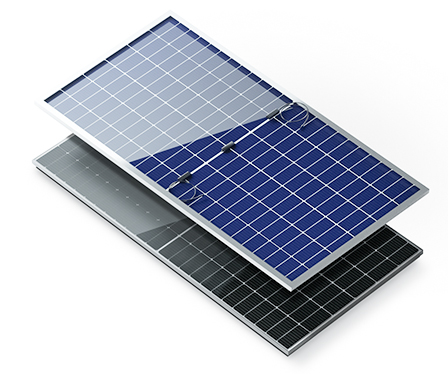
Multi-Busbar Technology
Multi-Busbar is finer and the distance is narrower, which can shorten the current transmission distance of busbars; half-cell are connected in series or parallel to solar panel, thereby reducing resistance loss: the gap area of the cell is increased, the solar output can increase over 10w. Minimizes micro-crack impacts. Heavy snow load up to 5400 Pa, wind load up to 2400 Pa.
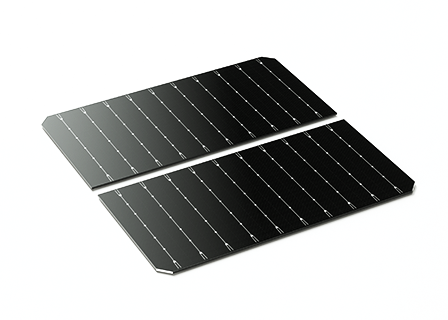
Half Cell Solar Module
With the integration of half-cut cell, multi busbar and bifacial technologies, BiMAX5 achieves higher energy generation performance. The 2mm AR coated glass layers, split junction box, and bifacial frame design enables compatibility for a wide array of utility and C&I applications. Higher performance with strong core technologies. BiMAX5 can reduce module quantity in a power station, thus lowering the corresponding cost of supports, cables, construction and land.

BiMAX5 Solar Panel Certifications:
IEC 61215, IEC 61730, UL 61730
ISO 9001:2008: ISO Quality Management System
ISO 14001: 2004: ISO Environment Management System
OHSAS 18001: 2007 Occupational Health and Safety
BiMAX5 Solar Panel Features:
- Bifacial technology enables additional energy harvesting from rear side (up to 25%)
- Glass/glass lamination ensures 30 year product lifetime, with annual power degradation < 0.45%,
- 1500V compatible to reduce BOS cost
- Solid PID resistance ensured by solar cell process optimization and careful module BOM selection Reduced resistive loss with lower operating current
- Higher energy yield with lower operating temperature
- Reduced hot spot risk with optimized electrical design and lower operating current













